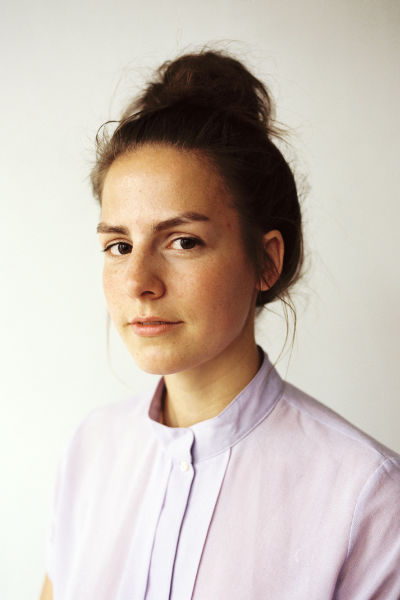Helene Bukowski

»It’s crazy, the land we had salvaged was betraying us.«
While studying literary writing and editing in Hildesheim, author Helene Bukowski published work in various anthologies and magazines, including "BELLA triste", which she also co-edits. She also co-wrote and directed the documentary film "10 Wochen Sommer" (Ten Weeks of Summer), which was awarded the Grimme Special Prize for Culture in 2015. In the spring of 2019, she published her first book “Milchzähne” (Milk Teeth) with Blumenbar, which tells of the survival of a mother and her daughter in a dystopian climate change scenario.
Location, time and the state of civilisation are not exactly defined in Helene Bukowski's novel. "Milk Teeht" is set in the aftermath of an unspecified environmental disaster, and follows the members of the surviving self-sufficient community, who have established themselves within a demarcated area, as they struggle to live in such a dangerous environment. In this world, either the scorching heat renders their secluded living space inhabitable, or a cold, dense fog sets in, destroying any hope of escaping their hard, rural life. In this post-catastrophic landscape, the relationship between Edith, who lives in isolation, and her daughter Skalde is put to the test. The real danger, though, comes later, when the apparently eco-fascist neighbours begin to alienate the girl with the baby teeth. Bukowski forges an ominous unity between dismal climate conditions and unnerving social tensions, which is set up by the book’s Joan Didion epigraph: "Don’t you think people are formed by the landscape they grow up in?"